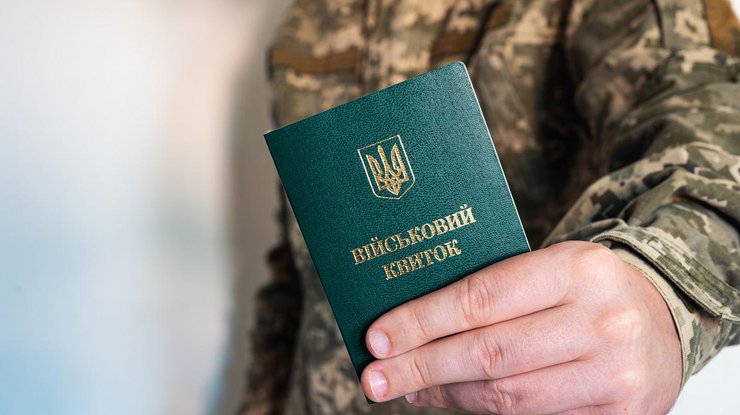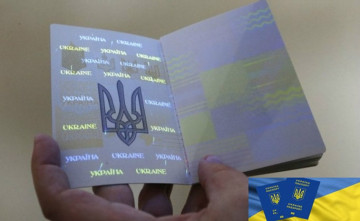I am studying in the third year of the State University of Economics and Technology.I specialize in contractual, economic and corporate law, in particular, I provide consultations and write articles.
Issuance of postponement of mobilization
Deferral from mobilization is a right that allows conscripts not to be called up for military service for a certain period of time. Conscripts have the right to postpone mobilization in accordance with the Cabinet of Ministers of Ukraine Resolution No. 560.
- Conscripts must personally submit and register an application for deferment.
- Along with the application, you must submit documents that confirm the existence of grounds for postponement.
- The documents are considered by a specially formed commission on postponement of mobilization within a seven-day period. The commission verifies documents and may make requests to relevant authorities to confirm information.
- After the inspection, the commission makes a decision, which is formalized in the protocol. If there are grounds for postponement, the conscript is issued a certificate of postponement of mobilization.
- If the commission does not see grounds for postponement, the conscript is issued a notice. The notice shall specify the reasons for refusal and methods of appeal.
- Issuing a postponement from mobilization is an important process that requires attention and compliance with established procedures. Conscripts are advised to familiarize themselves with all requirements and prepare the necessary documents to avoid delays or refusals.
Question
What are the grounds for refusing a postponement?
Answer
According to Art. 23 of the Law "On Mobilization Training and Mobilization", a person may not meet the criteria that grant the right to deferment. If the conscript did not provide all the necessary documents or they were insufficient to confirm the right to deferment, this may be grounds for refusal. Incorrectly or incompletely filling out the application may lead to rejection, as the commission may consider it invalid. The absence of military registration or the necessary military registration documents makes it impossible to grant a deferment. If the documents attached to the application are not properly certified (for example, missing signatures, seals), this may be grounds for refusal.
Understanding these reasons can help conscripts avoid mistakes when applying for deferment. It is important to check all documents carefully and follow established procedures to reduce the risk of rejection.
Appeal against the refusal to grant a deferment from mobilization
Challenging the denial of a deferment from mobilization in an administrative court is an important legal step, especially in situations where the commission has made a decision that you believe is wrong.
- Receive official notice of denial of deferment. Make sure you keep a copy of it for future reference. Collect all the necessary documents: a copy of the written refusal, documents confirming your right to deferment, other materials that can support your position.
- Make a statement of claim, indicating all the details of the case, the legal grounds for the appeal and your demands.
- Send a statement of claim to the administrative court at the location of the defendant or plaintiff.
- The court will schedule the opening of the proceedings and inform you of the date of the hearing. During this period, the court may also request additional documents.
- Be prepared to present your arguments in court. You may need to provide testimony or explanations to support your position.
- After considering the case, the court will make a decision. This decision becomes final after 30 days unless appealed.
- If the court decides in your favor, you will receive a certificate of postponement. After that, it is important to monitor the implementation of the decision to avoid possible problems.
- The court must consider the case and make a decision within 2 months from the opening of the proceedings. This is important to quickly protect your rights.
- Timely and correct implementation of each of these stages will allow you to successfully challenge the refusal to grant a postponement and protect your interests.
Provision of a claim in case of appeal:
Filing a claim is an important step in the legal process, especially in cases involving mobilization.
Question
Why is it necessary to apply collateral?
Answer
The application avoids the possibility of unlawful mobilization during your case, which is critical if you are eligible for a deferral. Submitting an application immediately after receiving a denial or while filing a lawsuit helps protect your rights quickly. A court order to secure a claim is binding on the relevant authorities, which provides you with additional legal protection. This helps reduce the risk of negative consequences that may arise in the event of illegal conscription.
- Content of the application: In the application, you must indicate: the name of the court to which the application is submitted, the details of the plaintiff and the defendant, a description of the circumstances that led to the submission of the application, a request to prohibit TCC and JV from taking actions related to mobilization. Attach to the application copies of: the statement of claim, the notice of refusal of the postponement, other documents that can confirm your requirements.
- Filing a statement: A statement of claim security should be filed at the same time as the main statement of claim, or already after it has been filed if you have been denied.
- Consideration of the application: The court will consider your application within the time limits provided by the law and may decide on securing the claim.
- Obtaining a decision: If the court approves your application, you will receive a decision to secure the claim. This resolution is binding for the relevant authorities.
Lawyer services in case of refusal to grant a postponement of mobilization
Legal services in the event of a denial of a deferral of mobilization can be very helpful. Here are the main types of legal services:
Lawyer consultation and legal analysis of the situation: A lawyer can analyze your situation, study the documents and explain why the refusal occurred, as well as possible ways to solve the problem. Lawyers online lawyers will help you to correctly draft a claim to the administrative court, including all the necessary legal arguments and facts. A lawyer can prepare and file a claim security statement to avoid illegal mobilization before the case is heard.
Court proceedings: A lawyer help will represent your interests in court, which allows you to professionally defend your position and arguments. An attorney will help gather all the necessary evidence to support your right to a deferral, and prepare affidavits if needed.
Legal services to appeal the decision: In the event of a negative decision, a lawyer can prepare an appeal to continue protecting your rights. A lawyer can provide legal support by explaining the process and next steps.
Deferral of mobilization is an important mechanism to protect the rights of conscripts in cases where conscription may be undesirable or impossible due to circumstances affecting their health or family status. To obtain it, it is important to follow the established procedures and submit the necessary documents in a timely manner. Lawyer advice in the event of a denial of a deferral is essential to effectively protecting your rights. The help of a lawyer can significantly increase the chances of a successful outcome in the legal process.




































